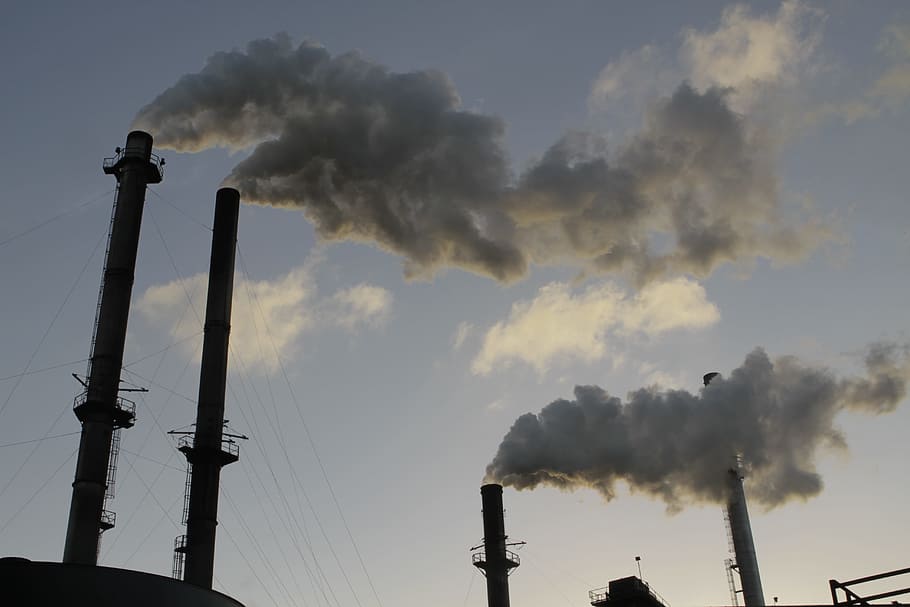As leader of Cambridgeshire County Council (CCC), and Chairman of UK100’s Countryside Climate Network, I welcome the ‘Building Back Greener’ policy recommendations published recently by One Nation Conservatives. https://onenationconservatives.files.wordpress.com/2020/08/buildingbackgreener.pdf
Delivering net zero is a perfect example of a One Nation approach – it will benefit everyone today and in future generations. The recommendations their report included will address the challenge of delivering net-zero carbon emissions through incentivising better low carbon choices and planning for nature based solutions to capture and store carbon emissions.

My Council, similar to others, is signed up to net-zero carbon emissions by 2050. We are working with businesses and our communities to deliver change. However, there is a delivery gap. For example, nationally we need to retrofit approximately 1 million homes a year for the next 30 years to take them off oil and gas for heating and hot water. But how can anyone believe that this can be achieved when other statistics highlight that only 172,000 new homes were built last year – do we have the construction skills capacity and capability to make change happen at this scale
This low carbon construction skills and supply chain gap needs filling quickly, to address the need to scale up delivery of home retrofits. Additionally, and importantly, homeowners need to be incentivised to shift from oil and gas heating. In Cambridgeshire we are working with a rural community of 300 homes to move them off oil fired central heating. However there are currently few economic reasons why those householders should want to change to low carbon heating systems. Jerome Mayhew MP suggests a carbon tax will incentivise behaviour change and drive demand from householders and encourage better environmental choice, I think it’s worth exploring whether a carbon tax could replace the VAT system over a period of time to achieve both behavioural change and keep costs neutral for the public.
Putting a value on carbon is important, whether real or just nominal. An
initial nominal valuation will help improve environmental decision making within Cambridgeshire County Council. I am encouraging our business cases to include two prices – one which includes the costs of carbon emissions and one without – the test will be to review decisions to see if this results in us making better decisions towards achieving our ambition of net-zero carbon emissions.
During 2019, researchers from Cambridge University quantified Cambridgeshire’s carbon footprint. Emission from homes, businesses, transport, waste, agriculture and land use change totalled 6.1million tonnes CO2e in 2017 with a further 5.1million tonnes CO2e estimated for agricultural peatland. As part of the research analysis, measures to deliver net-zero carbon by 2050 were identified. Apart from all homes and buildings needing to be retrofitted with low carbon heat solutions, such as air source heat pumps, it was identified that a network of 3,500 EV chargers would be required, in addition to substantial increases to walking and cycling. A massive effort, but even this would not deliver zero carbon emissions. To reach net-zero, carbon, capture and storage will be required to remove the remaining 0.6million tonnes of CO2e every year for Cambridgeshire alone. For this reason, I welcome our South Cambridgeshire MP Antony Browne’s views on the publication of a Greenhouse Gas Removal Strategy that includes carbon capture and storage, tree planting and soil improvement.
The Countryside Climate Network (CCN100), comprises 23 rural authorities covering over 40% of land across England. Planting trees is something that local areas can plan and deliver with financial support accepting some areas are more limited as to how and where trees can be planted. For example, CCC owns the largest county farms estate in England and works closely with its tenant farmers. I actively encourage our tenants to consider tree planting, use ploughing and other techniques to minimise emissions whilst also increasing soil quality and food productivity. Initiatives for sharing best practice and nature based solutions are also encouraged. Through our work with university researchers, I know there is an urgent need for a UK soil strategy – peatland emissions in Cambridgeshire are based on data that is over 40 years old and urgently need updating. This will allow us to plan how ‘our peatland’ asset can be better utilised with regards to airborne carbon. Building investor confidence in nature based solutions to carbon capture and storage must be supported as one of the overall solutions. I will be seeking environmental land management schemes, as set out in the Agriculture Bill, to invest in nature-based solutions to deliver results and proof of concept along with other Local Authorities in the CCN100.
The CCN100 is looking to work closely with government to support the UK to prepare as the host for the UN Climate Change conference, COP26, next year. This is our opportunity to showcase to the world progress and leadership.
If the key recommendations coming from the One Nation publication are taken up by the Government, my Council will be at the front of the queue to demonstrate how local climate action will make significant contributions to achieving our national net zero goal.



